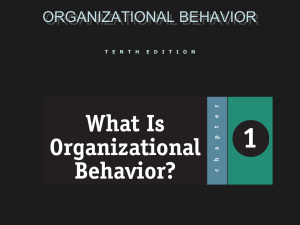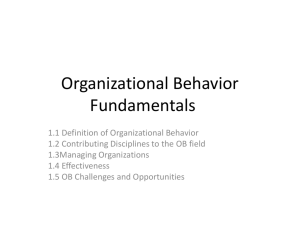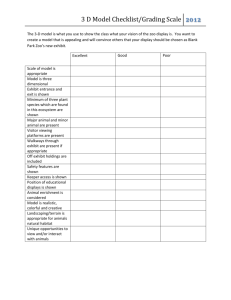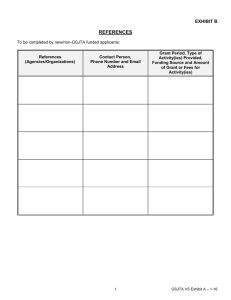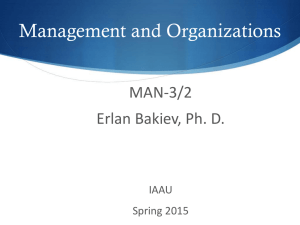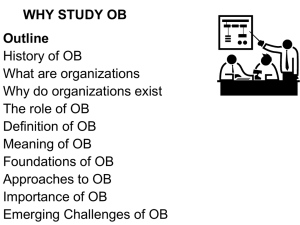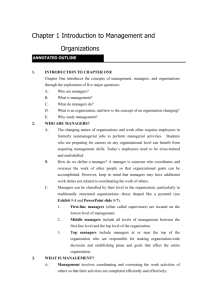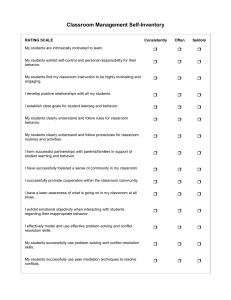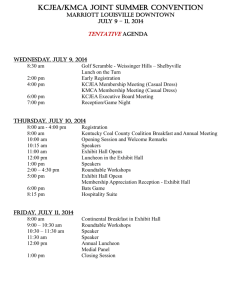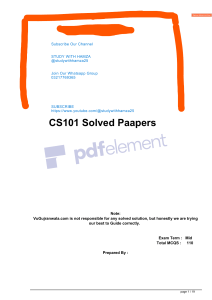Organizational Behavior 10e
advertisement
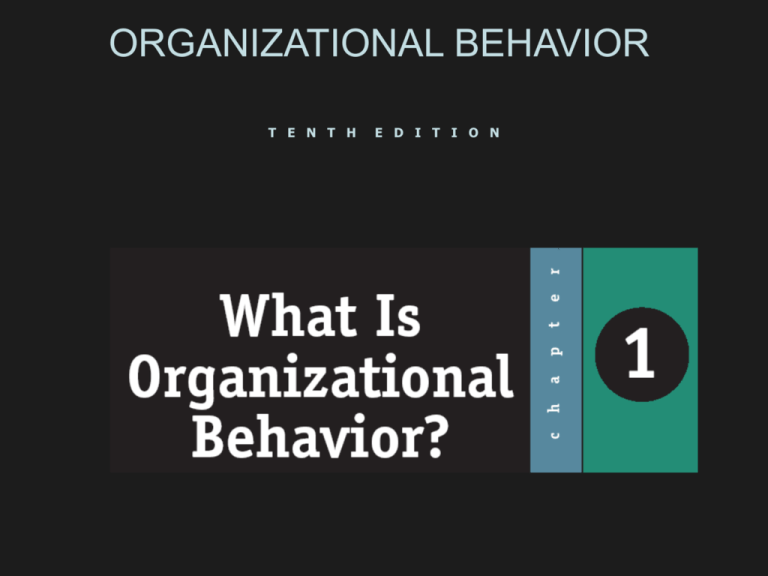
ORGANIZATIONAL BEHAVIOR T E N T H E D I T I O N OBJECTIVES LEARNING AFTER STUDYING THIS CHAPTER AND LISTENING TO MY LECTUER,I HOPE THTAT YOU WILL BE ABLE TO: 1. Define organizational behavior (OB). 2. Describe what managers do. 3. Explain the value of the systematic study of OB. 4. List the major challenges and opportunities for managers to use OB concepts. 5. Identify the contributions made by major behavioral science disciplines to OB. O B J E C T I V E S (cont’d) LEARNING 6. Describe why managers require a knowledge of OB. 7. Explain the need for a contingency approach to the study of OB. What Managers Do Managerial Activities • Make decisions • Allocate resources • Direct activities of others to attain goals Where Managers Work Management Functions Planning Organizing Management Functions Controlling Leading Management Functions (cont’d) Management Functions (cont’d) Management Functions (cont’d) Management Functions (cont’d) Mintzberg’s Managerial Roles EXHIBIT 1-1a Mintzberg’s Managerial Roles (cont’d) EXHIBIT 1-1b Mintzberg’s Managerial Roles (cont’d) EXHIBIT 1-1c Management Skills Effective Versus Successful Managerial Activities (Luthans) 1. Traditional management • Decision making, planning, and controlling 2. Communications • Exchanging routine information and processing paperwork 3. Human resource management • Motivating, disciplining, managing conflict, staffing, and training 4. Networking • Socializing, politicking, and interacting with others Allocation of Activities by Time EXHIBIT 1-2 Enter Organizational Behavior Contributing Disciplines to the OB Field EXHIBIT 1-3a Contributing Disciplines to the OB Field (cont’d) EXHIBIT 1-3b Contributing Disciplines to the OB Field (cont’d) EXHIBIT 1-3c Contributing Disciplines to the OB Field (cont’d) EXHIBIT 1-3d Contributing Disciplines to the OB Field (cont’d) EXHIBIT 1-3f There Are Few Absolutes in OB x Contingency Variables y Challenges and Opportunity for OB Responding to Globalization Managing Workforce Diversity Improving Quality and Productivity Responding to the Labor Shortage Improving Customer Service Challenges and Opportunity for OB (cont’d) Improving People Skills Empowering People Coping with “Temporariness” Stimulation Innovation and Change Helping Employees Balance Work/Life Conflicts Improving Ethical Behavior Basic OB Model, Stage I EXHIBIT 1-6 The Dependent Variables y x The Dependent Variables (cont’d) The Dependent Variables (cont’d) The Dependent Variables (cont’d) The Dependent Variables (cont’d) The Independent Variables Independent Variables Individual-Level Variables Group-Level Variables Organization System-Level Variables
